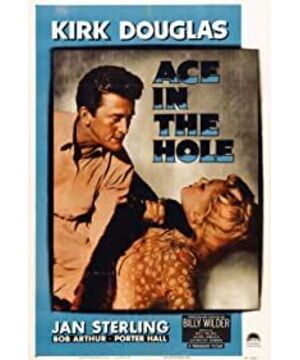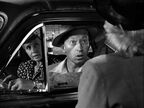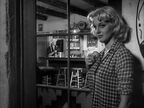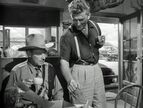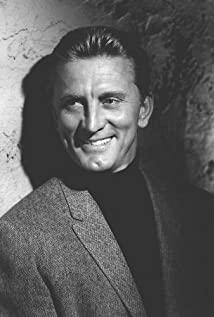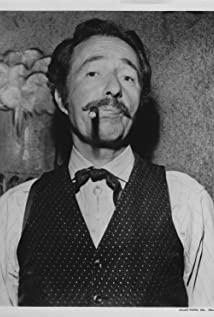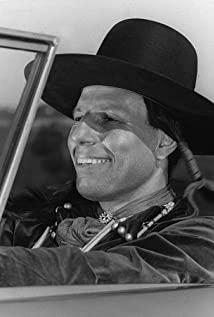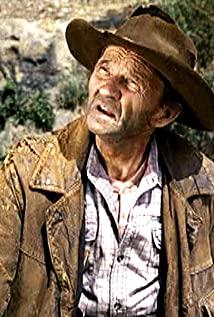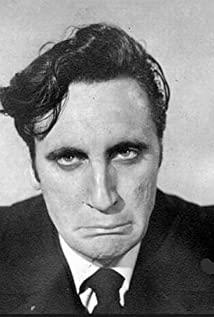Billy Wilder's 1951 black-and-white film "The Upside Down Ace" is rewatched after 69 years. The story told, the theme presented, and the intensity of criticism are still so fierce and fierce. The news media, the darkness of human nature, and political power, the film depicts how these three intimately collaborated to murder an innocent man.
The penniless, desperate Charles Teyton found a place to live with a job at a local newspaper in Albuquerque with a three-inch tongue. But for Teton, this is just a temporary stay. He wants to find a big news to detonate national public opinion, regain media attention and the favor of newspapers, return to New York and even win the Pulitzer Prize. The film opened in less than ten minutes. We can understand Taiton's ambition, hubris, arrogance. (Notice "Tell The Truth" in two places in the newspaper)
When the newspaper owner arranged for Teton and Herbie to compile the news about 1,000 rattlesnakes, Teton expressed his understanding of journalism in the car: Bad news is the most popular, which stems from selling newspapers on the streets since he was a child. , he has been aware of the general public's desire for bad news and the dark side of human nature since he was a child. If there is no news, he can choose to make news: for example, catching fifty rattlesnakes into the city, and even deliberately hiding the last snake in order to keep the news hot. This scene in the car pitted the savage Teton from the social circle with the simplicity of Herbie, who was born in a serious class, in order to highlight Teton's ability to control the complexities of news and human nature.
When they found that Leo, the owner of the roadside shop, was trapped in the cave during their drive, Teton went deep into the cave to send supplies to Leo and encouraged Leo. He did not want to be a hero. Leo's life was all set out, and a few photos were taken at the end, and his keen news-capturing ability played a role. A white man who excavated Indian treasures and was trapped in a cave, an imaginative Indian curse, a news blockbuster was born, and a public opinion explosion was produced by Teton.
Note that when Taiton and Herbie entered the cave, Taiton's talk about "human interest" penetrated the darkness of human nature, as unfathomable as the cave they entered. (Herbie's identity as a news professional was ruthlessly mocked by Teton again, and Teton's actions shocked the honest and honest Herbie all the time)
Leo, who was buried deep in the cave, was an opportunity for Teton to become famous, and for Leo's wife, Mrs. Minosa, it was an opportunity to escape, and for the "ordinary Americans" outside, it was a chance to satisfy the onlookers and wonder. chance.
After Teton's persuasion, Mrs. Minosa regarded Leo's trapping as an opportunity to make a fortune, collecting tickets and selling hamburgers. Because of her husband's trapping, she earned her first thousand dollars in her life, and she even started dating Teton flirts.
Just as Teton predicted, thousands of cars pulled ordinary Americans to the scene. There were playgrounds, rescue foundations, singing bands and other facilities on the scene. The Rio special train pulled the general public to frantically. When they rushed to the rescue scene, what everyone cared about was not whether Leo could be saved, but that the curiosity of the onlookers was greatly satisfied. In particular, the American family who arrived at the scene was the first to set up a tent at the scene. During the interview, they argued against the order of arrival. When they finally learned the news of Leo's death, the The mistress of the family was also in tears. It's really ironic. In a sense, these ordinary people participated in the farce of killing Leo. And Taiton accurately grasped their psychology and exploited their desires. Just like we pay attention to entertainment news now, we will not pay attention to the trauma suffered by Wang Baoqiang, Ma Rong and the children and their families at all, we will only pay attention to the blood relationship of the two children, the judgment of the court, the slut humiliation, Song Zhe and Ma Rong's obscene video. For so many years, Billy Wilder's ordinary characters in the movies seem to be ourselves.
The scene where the sheriff appeared is very special. He did not pay attention to the rescue at the entrance of the cave, but was teasing the rattlesnake in the carton in the store. The sheriff's vicious side was presented. He would rather care what kind of food to feed the rattlesnake. Regardless of the progress of the rescue, the sheriff was angry when he got a call from Teton that night for interfering with his election campaign. When Teyton haggled with the sheriff over monopoly news coverage, he made an offer that the sheriff couldn't resist—making the sheriff a hero in this rescue and building momentum for his campaign succession. The news media and political power colluded, and the correct, fast and effective rescue plan was rejected by the sheriff, because this plan was not conducive to Teton maintaining the news and was not enough to create a heroic image of the sheriff. The sheriff doesn't care whether Leo can get out of trouble at all, he only cares about the votes, and when Teton tactfully explained to him how to rescue Leo and how it would affect his campaign, he immediately trusted him. And heed Teton's advice. The sheriff didn't care about Leo's death from beginning to end, even when he finally learned from Tyton's mouth that Leo was about to die, he refused to change the rescue method, because it would need to explain the reason to the public, which would undoubtedly make him take advantage of this. The heroic image created by the rescue incident had a negative impact.
In exchange for portraying the Sheriff's hero, Teton gets exclusive reporting and exclusive access to Leo. When other media came in, Teton had a wonderful conversation with other reporters. From this conversation, we know that these reporters are not fundamentally different from Teton. They are all doing whatever they can to achieve their goals. They got there first. The reporters came from afar just to gain something. When reporters threatened to report that the sheriff and Taiton had monopolized exclusive reporting rights, the sheriff and Taiton had nothing to fear, knowing that such a report would surely turn into bureaucratic buck-passing. Just like when we faced the truth of Dr. Li Wenliang's death, a person can die at different times and live at different times. The truth behind it is self-evident.
The director's character creation is undoubtedly successful, Mrs. Minosa's ruthlessness, Herbie's pure ignorance, the sheriff's arbitrary authority, etc., but the main thing is to shape the character of Charles Teton, as we mentioned earlier. It is the side of Taiton who will do anything to achieve his goals. In fact, the director also showed another side of him. When he saw the painful and pious parents of Leo, he couldn't bear to look directly; when he faced Mrs. Minosa's ruthlessness to her husband Leo, he would force her to put on the fifth anniversary wedding souvenir that her husband had prepared for her; when he was stabbed by Mrs. Minosa, he would endure the pain to go to the priest to anoint Leo on his deathbed; when he went to the cave When he visited Leo, the truth anxiously encouraged Leo; when he realized his fault, he repented and wanted to reveal the real reason for the tragedy. The director created a complex character, and he ended up paying the price with his life for his desire to become famous.
When Tyton bleeds too much and falls to the ground in the newspaper office, his eyes are directed towards the camera, towards us as the audience, like a murderer looking at another group of murderers.
View more about Ace in the Hole reviews


